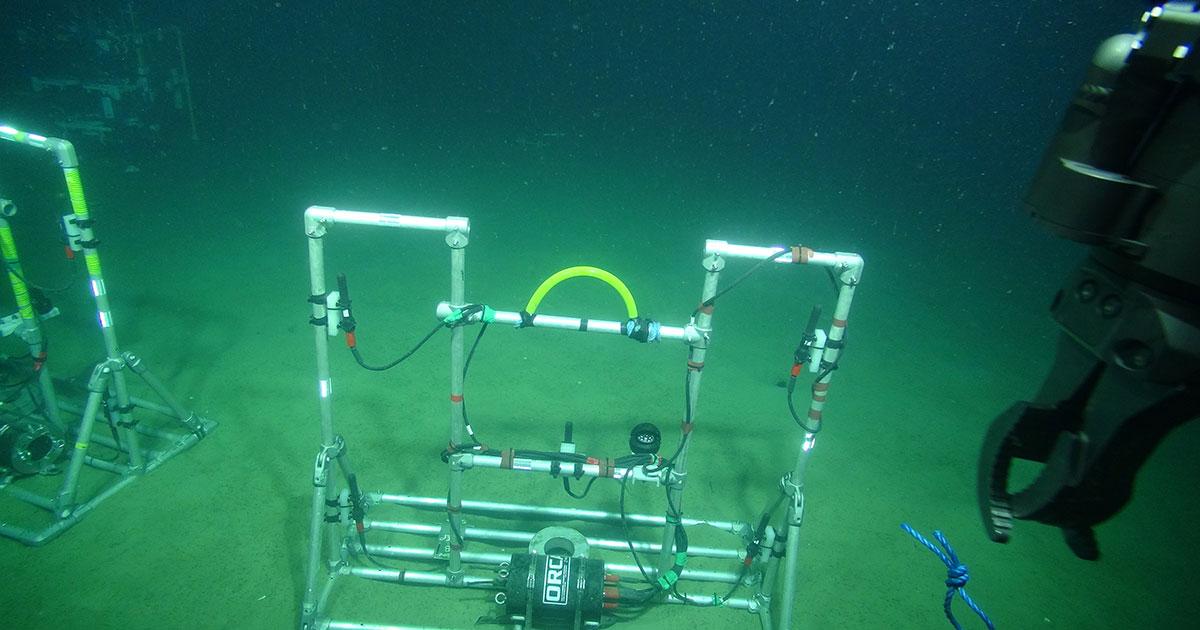Carbon Capture and Storage (CCS) has been identified as an important strategy to mitigate anthropogenic carbon dioxide emissions.
The aim of CCS is to take carbon dioxide from large emission sources, such as power stations, transport it to a storage site and permanently lock it away so that it cannot be released into the atmosphere. Proposed CCS storage sites are usually geological formations such as deep underground caverns, either onshore or offshore.
STEMM-CCS is an EU-funded project looking at developing new tools and strategies to monitor offshore CCS reservoirs. One of the STEMM-CCS research team’s roles is to investigate the leak detection of carbon dioxide by monitoring how gas bubbles behave when they rise up through the seabed and into the water column. An innovative monitoring technique being tested is the use of acoustic recorders to listen for bubbles in the water column and analyze their characteristics from the noise they make. As part of the STEMM-CCS program an in-situ test site was set up in the North Sea and gas leaks were simulated by an artificial source piped in under the seabed.
RS Aqua’s multichannel Orca acoustic recorders were selected by STEMM-CCS team members from the University of Southampton to carry out the acoustic monitoring. In the photo above you can see an Orca recorder and the ‘hydrophone wall’ the team built to hold the Orca’s 5 hydrophones in place whilst they simultaneously record the noise of the bubbles emerging from the seabed on each of the hydrophone channels. The Orca’s high-resolution recordings across 5 channels with different gain settings will provide the researchers with detailed information about the style and quantity of gas emission, and hopefully improve confidence in offshore CCS sites.
STEMM-CCS is funded by the European Union’s 2020 Research and Innovation Program under Grant Agreement No. 654462
Story by RS Aqua





